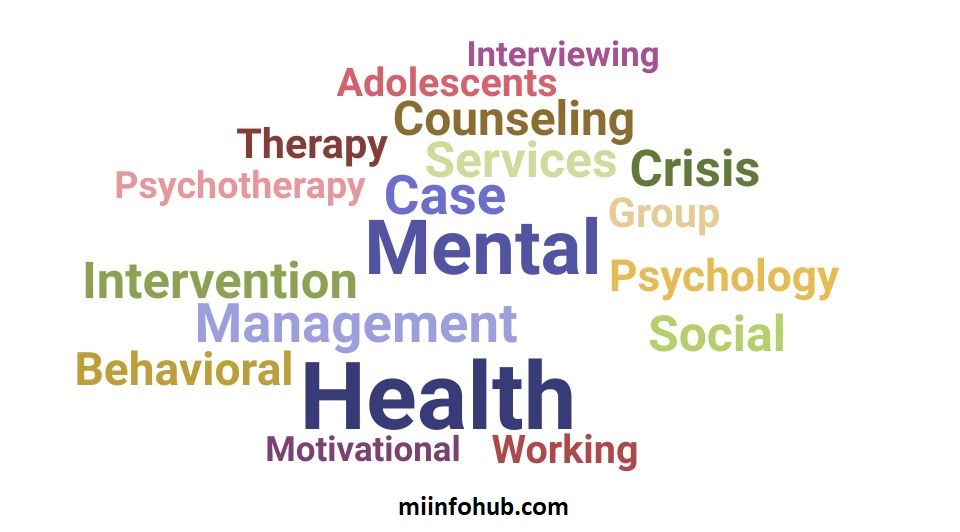Introduction
Finding the right mental health support is crucial to ensuring proper care and recovery. A Case Manager For Mental Health helps you navigate treatments, manage appointments, and access necessary services, making the process less overwhelming. They act as your advocate, coordinating care among healthcare providers and helping you access community resources. This guide covers everything you need to know about how to get a case manager for mental health, what they do, and how they can make a difference in your journey towards improved mental health.

What Is A Mental Health Case Manager?
A mental health case manager plays a vital role in connecting you to essential services. They assist with managing your treatment plans, finding housing solutions, and accessing community support programs. Their primary goal is to ensure you receive the best, most comprehensive care possible, helping you navigate the complexities of mental health services and improve your overall well-being. If you want to know more about outpatient mental health treatment then click here.
Who Needs A Case Manager?
People with ongoing mental health needs benefit the most from having a case manager. If you struggle with managing treatments or accessing essential resources, a case manager can provide valuable assistance. They support individuals dealing with conditions like anxiety, depression, bipolar disorder, or schizophrenia, helping to ensure continuous care and access to the right services for their mental well-being.
Where To Start?
Start by discussing the option of a case manager with your therapist or doctor. They can provide a referral to someone who meets your needs. Additionally, many mental health clinics have case management services, so it’s worth asking if this is available through your local clinic. This step will connect you with the right support to manage your care effectively.
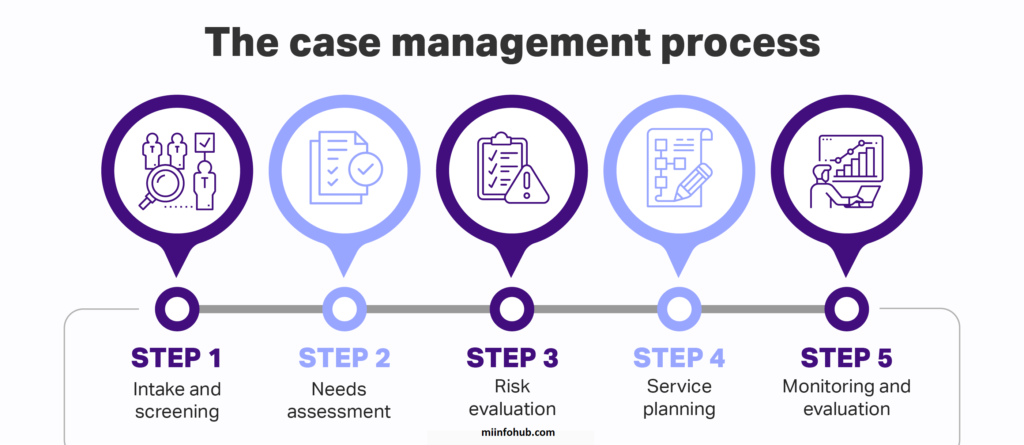
How To Find A Case Manager?
- Through Healthcare Providers: Reach out to your primary care physician or mental health specialist. They often collaborate with case managers and can provide you with referrals.
- Local Mental Health Clinics: Many clinics have in-house case managers who are available to assist you with your mental health needs.
- Community Mental Health Programs: Explore local programs that offer mental health services, as these often include case management as part of their support services.
- Nonprofits: Some nonprofit organizations specialize in connecting individuals with mental health case managers. They can be valuable resources in finding the support you need.
How To Qualify For A Mental Health Case Manager
To qualify for a case manager, you typically need to meet certain criteria, which often includes having a diagnosed mental health condition. Government programs like Medicaid have specific guidelines regarding eligibility. However, many nonprofit and community organizations may offer assistance without strict requirements. It’s essential to speak with your healthcare provider to assess your eligibility and determine the best path forward for your mental health needs.
What Services Does A Case Manager Provide?
A case manager provides a range of essential services, including:
- Medical Appointment Coordination: They assist in scheduling and managing your healthcare visits, ensuring you stay on track with your treatment.
- Access to Social Services: Case managers connect you with crucial resources such as housing, employment opportunities, and financial aid programs.
- Treatment Planning: They collaborate with you and your healthcare providers to develop a personalized care plan that addresses your specific needs.
- Emotional Support: While they are not therapists, case managers offer guidance and help you navigate the mental health system, making the process more manageable.
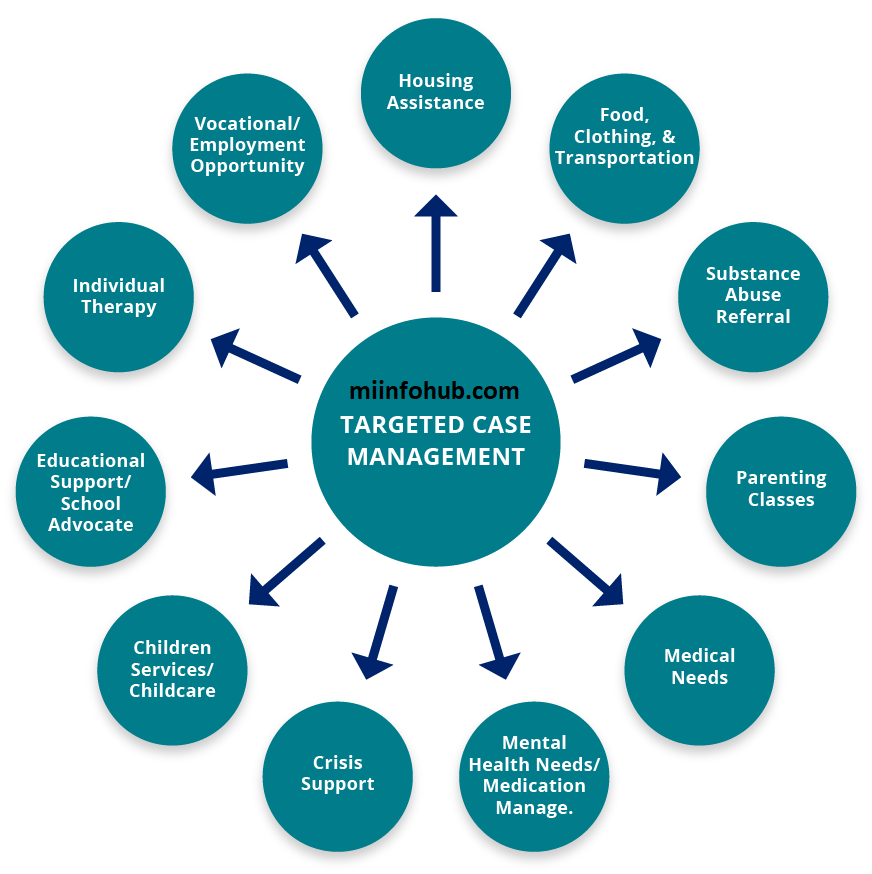
The Benefits Of Having A Mental Health Case Manager
Having a case manager offers numerous benefits, including:
- Easier Access to Care: Case managers help you navigate complex healthcare systems, ensuring you receive the services you need without unnecessary delays.
- Personalized Support: They tailor their assistance to meet your specific mental health needs, providing guidance that aligns with your unique situation.
- Stress Relief: By managing administrative tasks and coordinating care, case managers alleviate some of the burden, allowing you to focus more on your recovery and overall well-being.
Do You Need Insurance?
Not always. Some case managers work through government programs or nonprofit organizations, providing support regardless of your insurance status. If you have insurance, it’s important to check if it covers case management services. Many insurance plans, including Medicaid, often include case management for mental health, which can help you access the support you need without additional costs.
Government Assistance
Programs like Medicaid, Medicare, and Veterans Affairs (VA) provide case management services that are often free or low-cost. To explore your options, visit your local government office or their website. There, you can inquire about eligibility requirements and the application processes for accessing these valuable services. This can help you get the support you need for your mental health care.
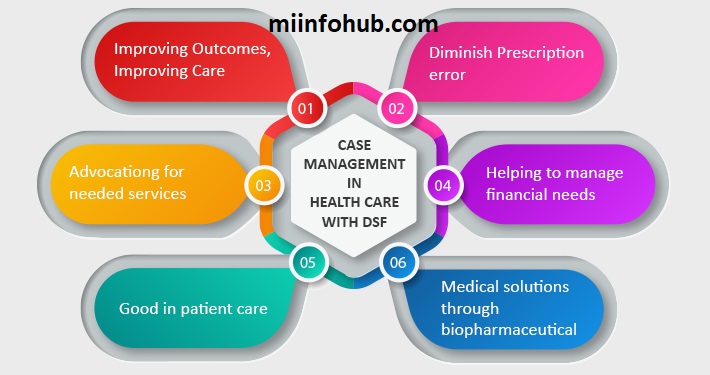
Private Case Managers
You can also hire a private case manager. While this option can be more expensive, many individuals prefer the flexibility and personalized care that private case managers provide. They often offer tailored services that cater specifically to your needs, allowing for a more customized approach to your mental health care. This can be particularly beneficial if you require specialized attention or prefer a more hands-on relationship with your case manager.
How To Advocate For Yourself When Seeking A Case Manager
To advocate for yourself effectively, consider the following steps:
- Be Clear About Your Needs: Clearly explain to your doctor or therapist why you feel a case manager is essential for your care. Provide specific examples of how their support can benefit you.
- Ask Questions: Take the initiative to ask questions about your options and the types of services available. Understanding what is offered can help you make informed decisions about your care.
- Follow Up: If you encounter delays or issues in accessing case management services, don’t hesitate to follow up with your healthcare provider. Persistence can ensure that your needs are addressed promptly.
Common Challenges In Getting A Case Manager
Getting a case manager isn’t always easy. Common challenges include:
- Long Wait Times: Many programs experience high demand, leading to waiting lists that can delay your access to services.
- Limited Availability: In rural areas, it can be harder to find case managers, which may limit your options for support.
- Insurance Barriers: Some case management services may not be covered under certain insurance plans, making it difficult to access the help you need without incurring additional costs.

How To Change A Case Manager If Needed
If you’re unhappy with your case manager, you have the option to request a change. Here’s how to go about it:
- Facilitate the Transition: Your healthcare provider can assist in facilitating the transition to a new case manager if needed. They can guide you through the process and help ensure that your needs are met moving forward.
- Discuss Your Concerns: Start by talking openly with your healthcare provider about your concerns. Be specific about what isn’t working for you.
Online Case Management
Some services now offer online case management, which provides great convenience for those who prefer virtual care. Here are a few key points about this option:
- Comfort: Many individuals find virtual interactions more comfortable, which can enhance the effectiveness of the support they receive. You can discuss sensitive topics from the comfort of your own space.
- Flexibility: Online case management allows you to connect with your case manager through phone or video chat. This flexibility can be especially helpful if you have transportation issues or prefer to manage your care from home.
- Accessibility: Virtual services can make it easier to find and access case managers, regardless of your geographical location. You can connect with professionals who may not be available in your area.
Support For Families
Case managers often extend their support to families as well. They play a crucial role in educating family members on how to effectively support their loved ones facing mental health challenges. By providing valuable resources and information, case managers help families understand the complexities of mental health conditions. This guidance can include coping strategies, communication tips, and insights into the treatment process. As a result, families feel more empowered and informed, which can significantly reduce stress for both the individual and their family. The collaborative approach fosters a supportive environment, ultimately enhancing the overall mental health journey for everyone involved.
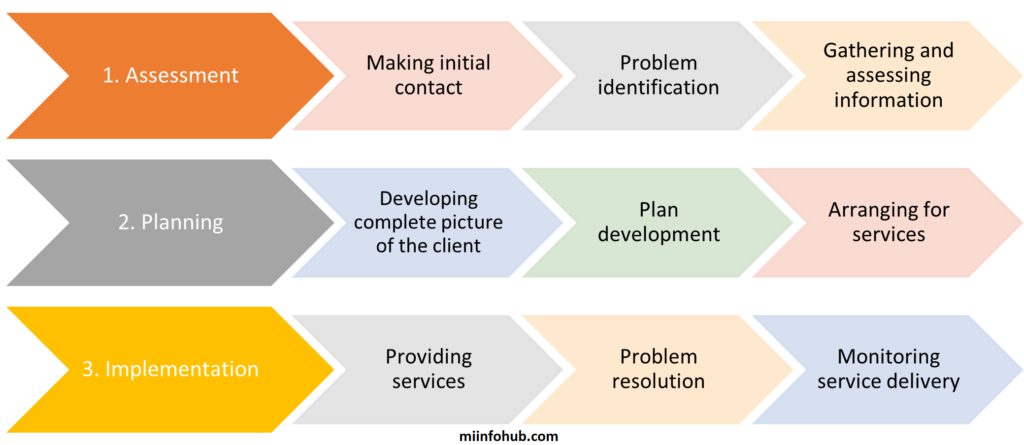
How To Get Help Quickly
If you’re in urgent need of mental health support, it’s crucial to seek help immediately. Start by contacting local crisis hotlines, which can provide you with immediate assistance and connect you to mental health services, including case management. These hotlines are staffed by trained professionals who can guide you through your situation. Additionally, emergency rooms and mental health crisis centers are equipped to handle urgent needs and can provide immediate referrals to case managers or mental health professionals. Don’t hesitate to reach out; getting help quickly is essential for your well-being.
FAQs About Mental Health Case Managers
- How much does a case manager cost? Costs vary. Government programs like Medicaid often provide free services. Private case managers charge fees based on experience and services offered.
- Can I get a case manager without a diagnosis? In most cases, you’ll need a diagnosis to access case management services. However, some nonprofits may provide support without requiring a formal diagnosis.
- Do case managers provide therapy? No, case managers coordinate care but do not provide therapy. They work closely with therapists, psychiatrists, and other mental health professionals.
Conclusion
A mental health case manager is key to managing your care effectively. They serve as a bridge between you and essential services, ensuring you receive the right treatment and support. By coordinating with healthcare providers, they help streamline medical appointments, access social services, and provide personalized care plans. This allows you to focus on your recovery instead of administrative burdens.
Start by asking your doctor or therapist for a referral, or explore local mental health clinics and community programs. Government assistance programs like Medicaid and nonprofits are great resources if you’re concerned about costs. Additionally, if you need more specialized care, private case managers offer a more flexible, individualized approach.
Whether through in-person or online case management services, the right case manager can significantly improve your mental health journey. They not only help you with medical needs but also offer emotional support and guidance, reducing the stress of managing your condition alone. By finding the right fit, you can prioritize your mental well-being, knowing that expert help is just a call away.
